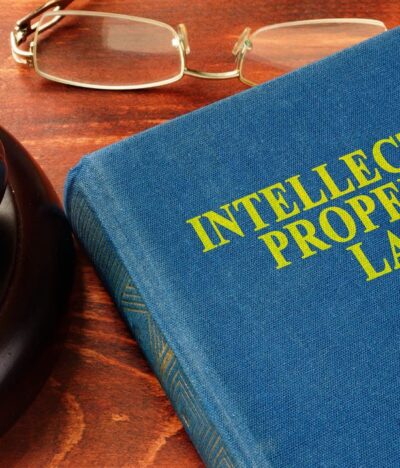Owners of new businesses, or businesses that are simply changing locations, are usually required to sign some form of a commercial lease. Commercial leases are often lengthy legal documents that consist of 30 to 40 pages of fine print. Even a standard commercial lease is very thorough and typically contains provisions and clauses that even experienced business owners do not understand. It is possible for business owners to successfully navigate their commercial lease, but it requires a great deal of scrutiny and understanding of the law.
Experienced and new business owners should always consult with a commercial lease attorney prior to signing on the dotted line. Commercial leases have certain pitfalls that all business owners should be aware of, and an attorney can explain what those are.
Unreasonable Subleasing Provisions
It is common for commercial landlords to include a provision with their lease that makes it mandatory for their tenants to seek approval prior to subleasing the property. Provisions such as these are not illegal, but California case law does stipulate that landlords cannot deny the request without a valid reason for doing so.
The landlord has the burden of proof to establish that they are not acting unreasonably when refusing a request from the tenant to sublet the property. Landlords must also notify the tenant of their refusal in writing, along with their reasons for the refusal. When landlords do not provide their refusal in writing, it is assumed they do not object to the tenant subletting the property.
Key Money is Against the Law
The term ‘key money’ refers to bribes, incentives, and under-the-table payments made to the landlord prior to the approval of a new commercial lease, or a renewal of a commercial lease. California law strictly prohibits landlords from requiring tenants to provide them with any form of key money as a condition of entering into the lease agreement.
If a landlord does ask a potential tenant for a form of key money, and a tenant is denied the leasing opportunity due to their refusal to provide the incentive, the tenant can file a lawsuit against the landlord. Within the lawsuit, potential tenants can seek up to three times the amount of damages or losses they suffered due to the denial of the rental.
Commercial Properties are Not Protected by Rent Control
Residential leases typically protect the tenant far more than they protect the landlord. Commercial leases do not offer the same protections for renters and they typically favor the landlord significantly. One protection commercial tenants do not enjoy, but that is often provided to residential tenants, is rent control. The reason for this is that provisions such as rent control in commercial buildings can hinder a competitive environment for businesses and can give one business an unfair advantage over another.
Still, sometimes commercial landlords voluntarily enter into an agreement with government agencies that place a cap on rental agreements. These caps act similarly to rent control laws. Potential commercial tenants should always speak to an attorney that can determine whether the landlord has entered into one of these agreements, and if they are in violation of it.
Notices of Eviction
Just like residential tenants, landlords may evict commercial tenants for a number of reasons. Common lease violations that can result in an eviction include subletting when the landlord has reasonably prohibited such actions, and non-payment of rent. However, landlords must provide commercial tenants with at least 30 to 60 days of notice of eviction, depending on the portion of the lease the tenant violated. Once that notice is given, the landlord must then provide the commercial tenant with three days to correct the violation prior to evicting them.
When the lease violation is non-payment of rent, the landlord has the right to provide an estimate of the amount of rent the tenant must pay to correct the violation. The landlord must clearly state on the notice that the amount indicated is only an estimate, and that the rent figure may actually be higher or lower than the amount on the notice.
Common Area Maintenance (CAM) Expenses
Sometimes, commercial landlords rent out to multiple tenants within the same property. This is particularly true in office buildings and shopping centers. In these cases, landlords have the right to include common area maintenance (CAM) expenses within the lease agreement. These expenses help with the upkeep and maintenance of the common areas within the property, such as lobbies, parking lots, public address systems, and more.
Typically, landlords will send tenants a monthly CAM invoice that represents a 12th of the tenant’s pro rata share of the CAM expenses for the entire year. When these expenses are smaller than what the landlord had originally estimated, the landlord must provide a refund to tenants. Likewise, when the CAM expenses are greater than what the landlord had originally estimated, the tenant is required to pay the difference upon receipt of the invoice.
All potential commercial tenants should be aware of these expenses prior to entering into a lease agreement. Too many tenants lease a property that is at the top of their budget, only to learn when it is too late that they cannot afford the CAM expenses. Asking the landlord to provide statements of CAM expenses for the last three years can also provide insight to whether the amount requested is reasonable or not.
Our California Commercial Lease Attorney Can Help You Navigate Your Lease
Lease agreements are always complicated, but commercial leases are particularly complex. At Klein Law, our Santa Monica real estate lawyer can help. Attorney Klein understands the drawbacks associated with commercial leases, and that landlords sometimes do not draft these agreements in a lawful manner. If you are about to enter into a commercial lease, call us first at (310) 295-2261to get the legal advice you need. We will always ensure the agreement is fair, and that your commercial lease will not hurt you in the years to come.






